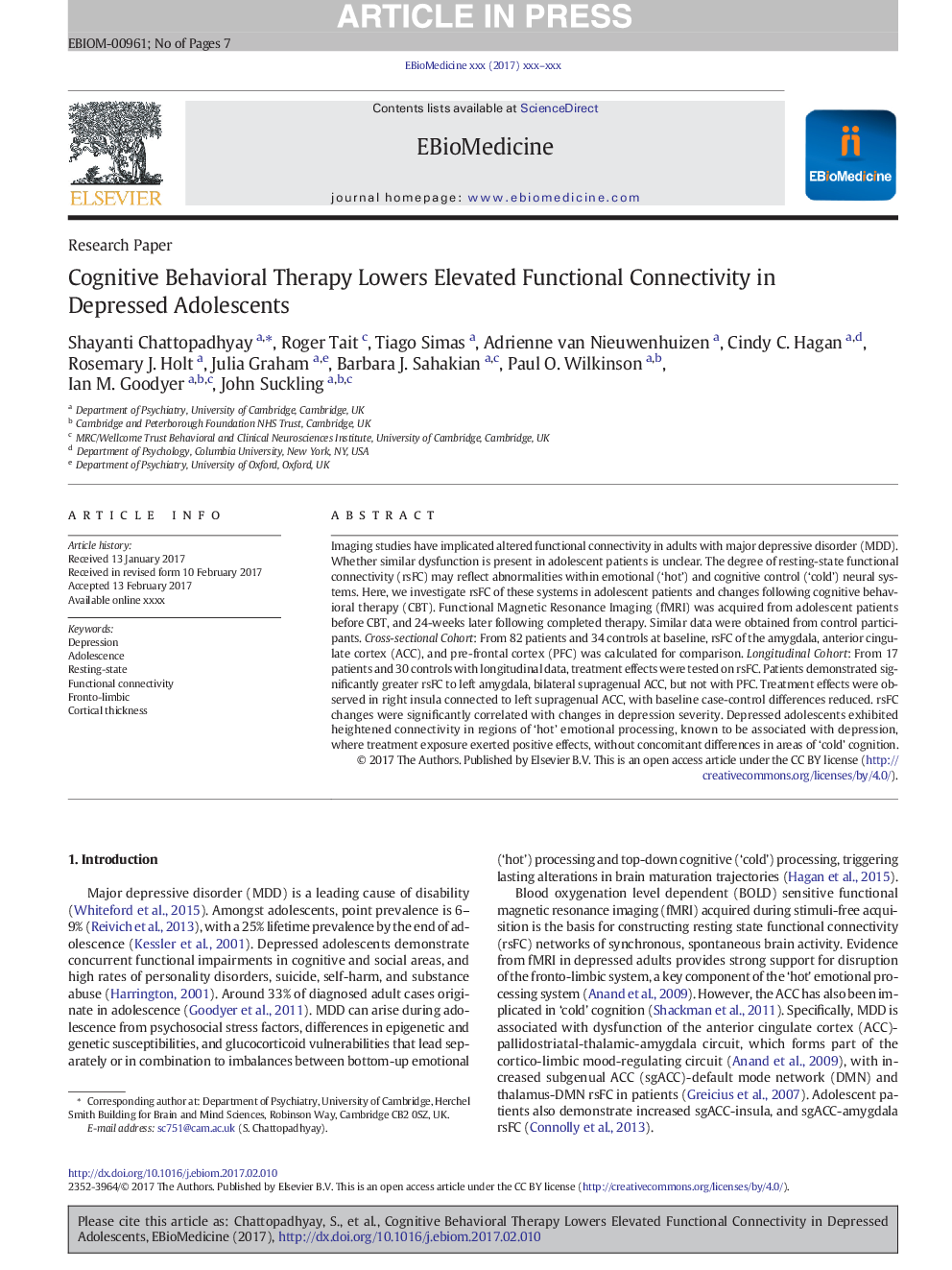ترجمه فارسی عنوان مقاله
درمان رفتاری شناختی باعث افزایش قابلیت اتصال به عملکرد در نوجوانان افسرده می شود
عنوان انگلیسی
Cognitive Behavioral Therapy Lowers Elevated Functional Connectivity in Depressed Adolescents
| کد مقاله | سال انتشار | تعداد صفحات مقاله انگلیسی |
|---|---|---|
| 115604 | 2017 | 7 صفحه PDF |
منبع

Publisher : Elsevier - Science Direct (الزویر - ساینس دایرکت)
Journal : EBioMedicine, Volume 17, March 2017, Pages 216-222
ترجمه کلمات کلیدی
افسردگی، بلوغ، حالت استراحت، اتصال به عملکرد فوندو لیمبیک، ضخامت قشر،
کلمات کلیدی انگلیسی
Depression; Adolescence; Resting-state; Functional connectivity; Fronto-limbic; Cortical thickness;

